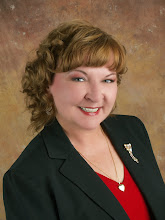Last Thursday, Comcast and NBCU marched up to Capitol Hill to testify before the House Commerce Subcommittee on Communications. At times it was a raucous exchange with Comcast CEO Brian Roberts and NBCU CEO Jeff Zucker making promises about what they will deliver once the two giant corporations are joined in holy merger matrimony.
The spectacle reminded me of the Carol King song “Will You Still Love Me Tomorrow?” Let’s pause on that song for a moment. It was meant to be a cautionary tale to us teenage girls of the 1970’s. Of course he’s staring in your eyes as if you are the most important woman on the face of the planet and he is saying all kinds of wonderful things to you, promising his undying love in an effort to soften your resolve not to “give in.” And you want so badly to believe him, but what’s going to happen when the night meets the morning sun?
Speaking strictly from the cable side, because that’s the side I pay attention to, there will be heartbreak.
In the last five years I’ve been in business and looking at cable at the community level, I can’t begin to tell you how many contracts the cable industry just ignores. Now most of us believe a legal contract is binding. We have contracts in our lives for a variety of things and most of us adhere to the terms of those contracts. Not cable. I have repeatedly seen blatant breaches of contract in several cities and towns and yet, even when called on those breaches, the cable operators don’t flinch, don’t promise to come into compliance and don’t even give a half-hearted apologetic “I’m sorry, we weren’t aware we were in breach.”
Why? Because they know that hardly anybody is going to enforce the contract.
They know that in the case of smaller towns there is a reluctance to hire an attorney to go after them. Makes sense. Lawyers don’t come cheap and even if they can recuperate their legal fees if they win, what if they lose? How do you justify to your constituents that you spent several hundred thousand dollars on a case that went nowhere? This holds true even with large communities, because as I have seen, the cable operators are perfectly willing to litigate you into the grave.
Another thing they know is that regulatory agencies have a tendency to sit on their hands and frequently won’t enforce their own state laws. I have sat in a room with a regulatory agency and cited the very clear language of the law regarding the number of PEG channels required in every franchise agreement and instead of the regulators turning to the cable operator and saying “Yep, that’s what it says alright,” they turn to me and ask me to negotiate downward.
Over three years ago, the Indiana legislature passed a state law that included the provision for local communities to petition the Indiana Utilities Regulatory Commission (IURC) for more PEG channels and for funding. Since that time no petitions have been filed. Why? Because the IURC has yet to create the petition process.
But we have as part of the dance, in the Comcast/NBCU merger courtship, a heartfelt promise to continue their commitment to PEG. Promises that, even if they were included in a legal contract, will be ignored when the night meets the morning sun because that’s what they do.
Now, more than ever, we need the Community Access Preservation Act (H.R. 3745, the CAP Act). And now more than ever we need a strong PEG presence at the FCC. For that reason, I and several of my colleagues have formed a new organization, American Community Television or ACT. We have formed it as a 501 (c) (4) so that we will face no limits on our lobbying activities. And that is our only interest, lobbying and helping others lobby. As our mission statement says:
American Community Television is a non-profit, 501 (c) 4 organization dedicated to the preservation of public, educational and government access television channels through the promotion and advocacy of positive federal legislation. ACT works, through communication with federal officials, for the passage and protection of federal statutes which establish and enhance the ability of local communities to use electronic media for the benefit of their citizens via public, educational and government access (PEG) television channels and to insure the accessibility for all citizens regardless of their socio-economic status.
We think it’s pretty simple, have a presence on Capitol Hill, at the FCC and before any legislative or regulatory body that will pass, or try to pass, legislation or regulations that affect PEG.
As we were discussing the formation of ACT, I was continually reminded of how the State Department used to bring people from various countries through the Alliance for Community Media office so I could tell them about PEG. To a person, these visitors were always amazed that we had this thing called Public, Educational and Government (PEG) access television. One man, from Thailand, said to me “If we were able to get these channels the government would take them away.” I will never forget how he said that and I will never forget the look on his face as he said it.
Sadly, since that time, we’ve had twenty state legislatures either take away these channels or drastically weaken their ability to survive. Now we need the Congress to make these channels whole.
To learn more about our effort and to join us, go to American Community Television
I look forward to having your company in the fight.
Bunnie Riedel, Executive Director
American Community Television (ACT)






No comments:
Post a Comment